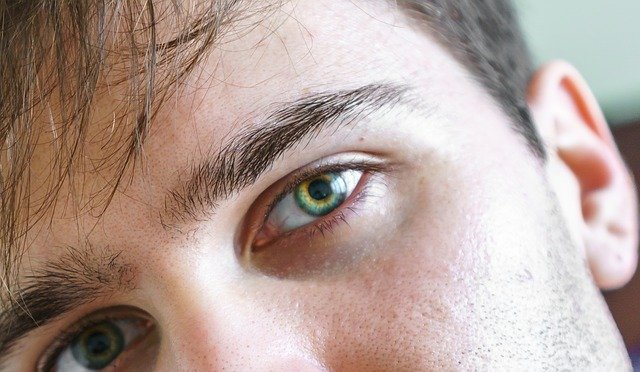If you haven’t had an eye exam in a while, here’s an important statistic you should know: One out of five Americans has had a non-eye-related health issue that was first detected by an optometrist. In fact, a dilated eye exam can do more than assess the health of your eyes. It can also show early signs of high blood pressure, immune diseases and other illnesses.
Thanks to the backing from the American Optometric Association, March has been designated as ‘Save Your Vision Month,’ reminding us that vision care is important to overall health.
Tips to Save Your Vision
Most people get glasses or contacts to correct their vision, but few think about steps to maintain their eyesight for life. Here are a few tips to save your vision.
Book an Eye Exam
Even if you have 20/20 vision, the Centers for Disease Control and Prevention (CDC) recommends getting an eye exam. This includes dilating your pupils to let in more light. The process gives the doctor a clear view of the back of your eye. A dilated exam also gives insight into your overall health. For example, in 2019, optometrists identified signs of diabetes in nearly 360,000 patients who didn’t know they had it.
Some eye problems that impair vision are linked to age. Experts recommend that adults who are over 65 have exams every one to two years.
Check Your Vision Coverage
Regular eye exams and corrective lenses are not covered by medical insurance. For routine checkups, glasses and contact lenses, you’ll want to consider vision insurance, which is relatively inexpensive and purchased separately from regular health insurance.
If you are 65 or older, you won’t have vision coverage with Medicare Part A and B. However, Medicare Advantage plans often bundle health coverage to include vision and dental insurance. Each plan is different, so check yours to be sure, and always feel free to reach out to a licensed health insurance agent who can help walk you through options and costs.
You GottaWear Shades
In addition to being a fashion accessory, sunglasses help block ultraviolet rays and protect the delicate skin around the eye from wrinkles and skin cancer. It’s recommended to get glasses that block 100 percent of UV-A and UV-B rays. Also, remember to wear sunglasses while driving to block glare.
Get Goggles
Most work and sports-related eye injuries can be prevented with safety eyewear. If you’re working with tools like sanders or grinders, wear safety glasses. Sports goggles are beneficial for games like baseball, soccer and lacrosse.
Kick the Habit
Smoking increases the risk of glaucoma, cataracts, and other issues that can lead to blindness. The good news is people who quit greatly reduce the risk of these conditions.
Eat Your Vegetables
Like the rest of your body, the eyes benefit from a healthy diet. The nutrients in dark leafy greens, fruits and vegetables help protect your vision. Additionally, include fish like salmon and tuna in your diet. Both are rich in omega-3 fatty acids, which can help reduce the risk of age-related eye disease.
Look Away
Staring at electronic screens for hours on end causes fatigue. To reduce eye strain, follow the 20-20-20 rule: Every 20 minutes look up and focus on something at least 20 feet away for 20 seconds.
Take a Walk
Exercise helps the eyes in several ways. It improves chronic conditions like high blood pressure and diabetes that are linked to eye disease. Just as working out lowers your blood pressure, it also reduces eye pressure which lowers the risk of glaucoma. Taking a brisk walk three or four times a week can decrease the probability of age-related macular degeneration by 70 percent. That is a condition where spots form in the field of vision, blocking sight.
Clean Your Contacts
The CDC estimates that up to 90 percent of contact lens wearers do not follow proper care instructions. To reduce the risk of eye infection, avoid sleeping in your contacts. Always wash your hands with soap and water before handling your lenses. Water can introduce germs to the eyes through the contacts so remove them before showering or swimming. Don’t use saliva to clean your lenses. Instead, carry a small bottle of contact lens disinfecting solution with you.
Know Your History
Many eye diseases are hereditary. For example, having a family member with glaucoma makes you four to nine times more likely to develop it, according to the American Academy of Ophthalmology. Find out if you are at risk for eye disease by learning your family’s history. If you think you are high-risk, schedule an eye appointment and let your ophthalmologist know.
Pay Attention to Warning Signs
If you notice changes in your vision, see your eye doctor right away. Be alert for trouble signs like floaters, double vision or difficulty seeing in low light. Eye pain, blind spots, flashes of light or red eyes are symptoms of potentially serious problems that call for immediate attention.
Are You Saving Your Vision?
By following these tips and practices, you can not only keep your eyes healthier, but your overall health too!

